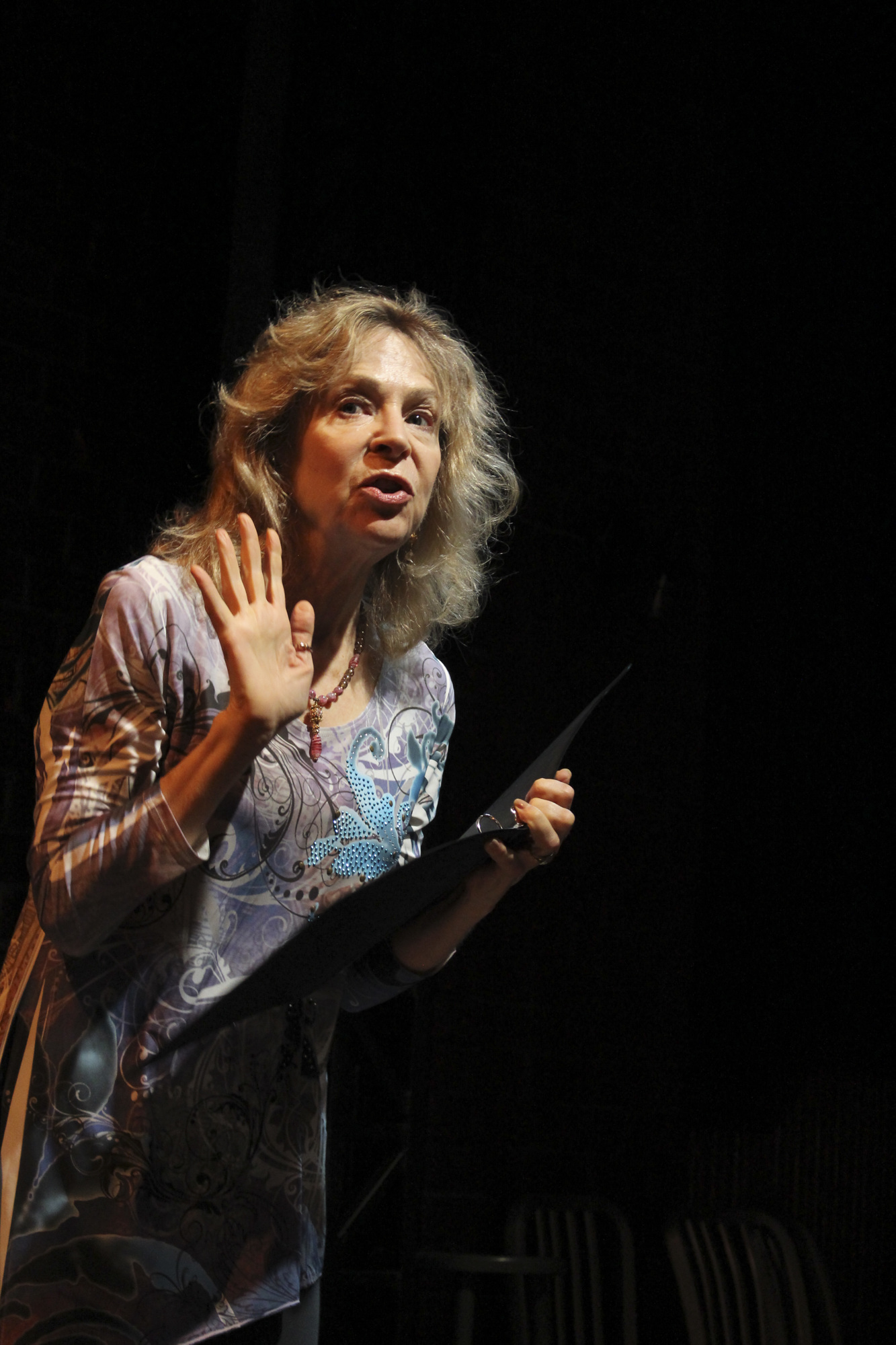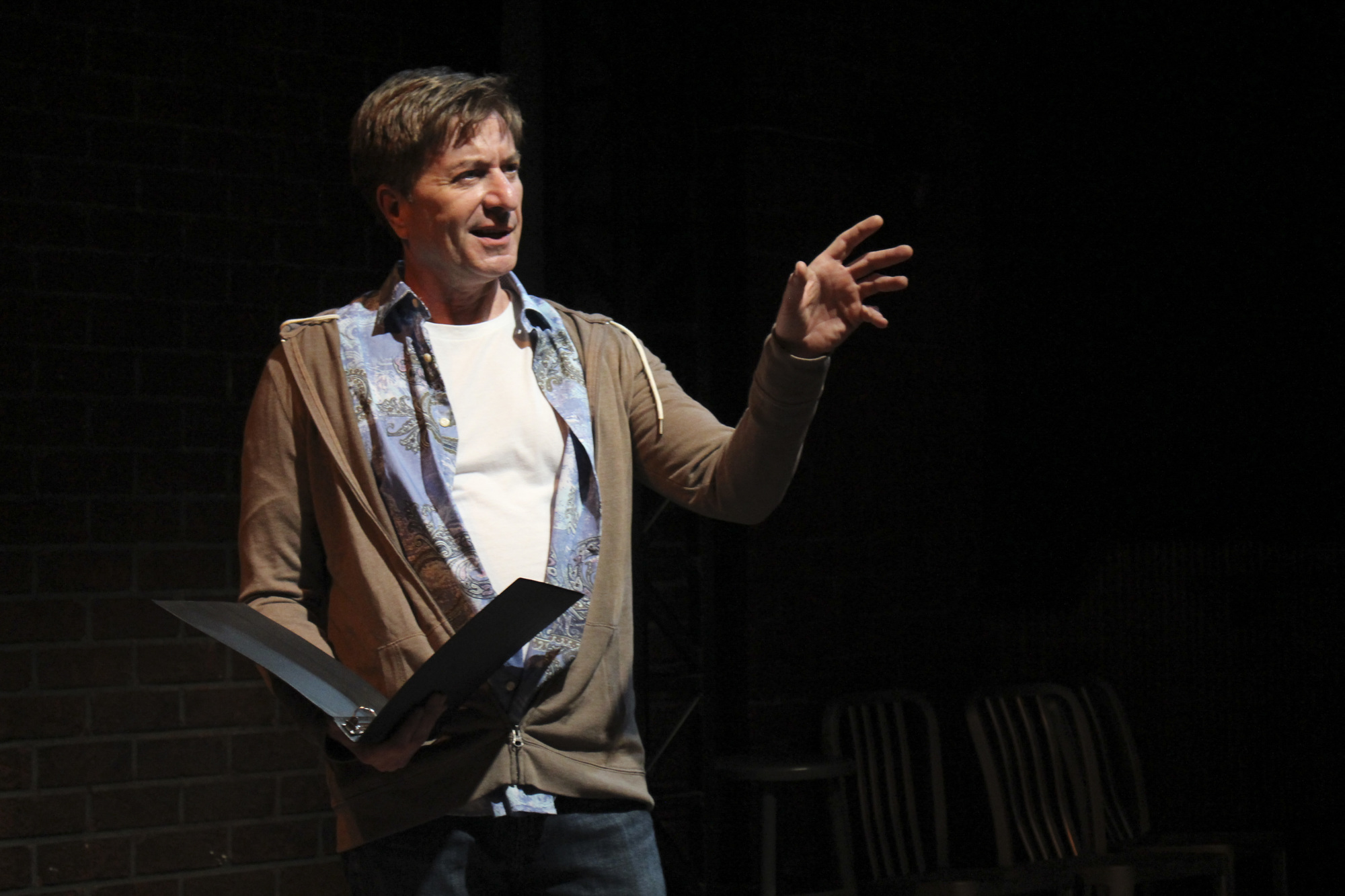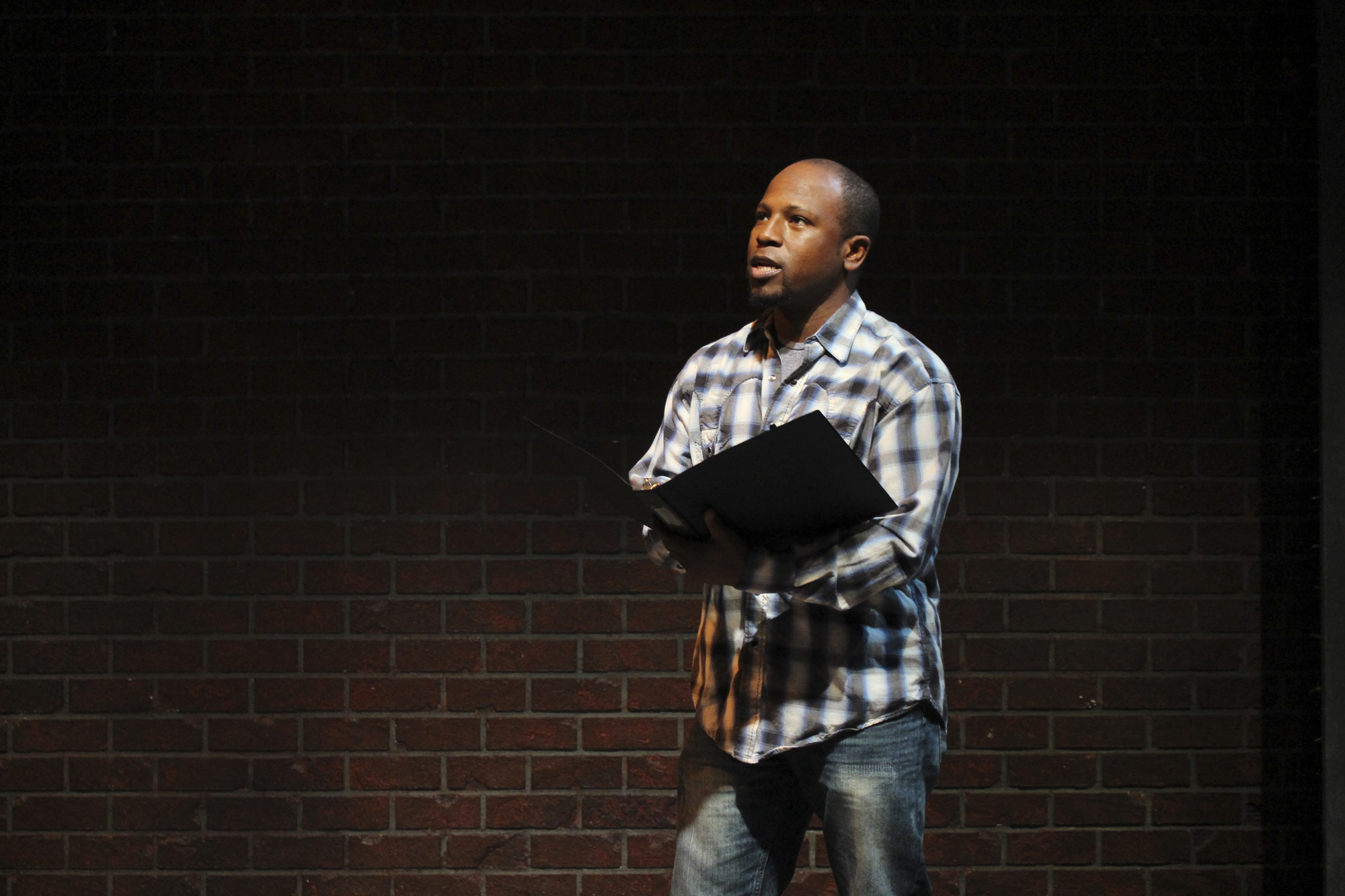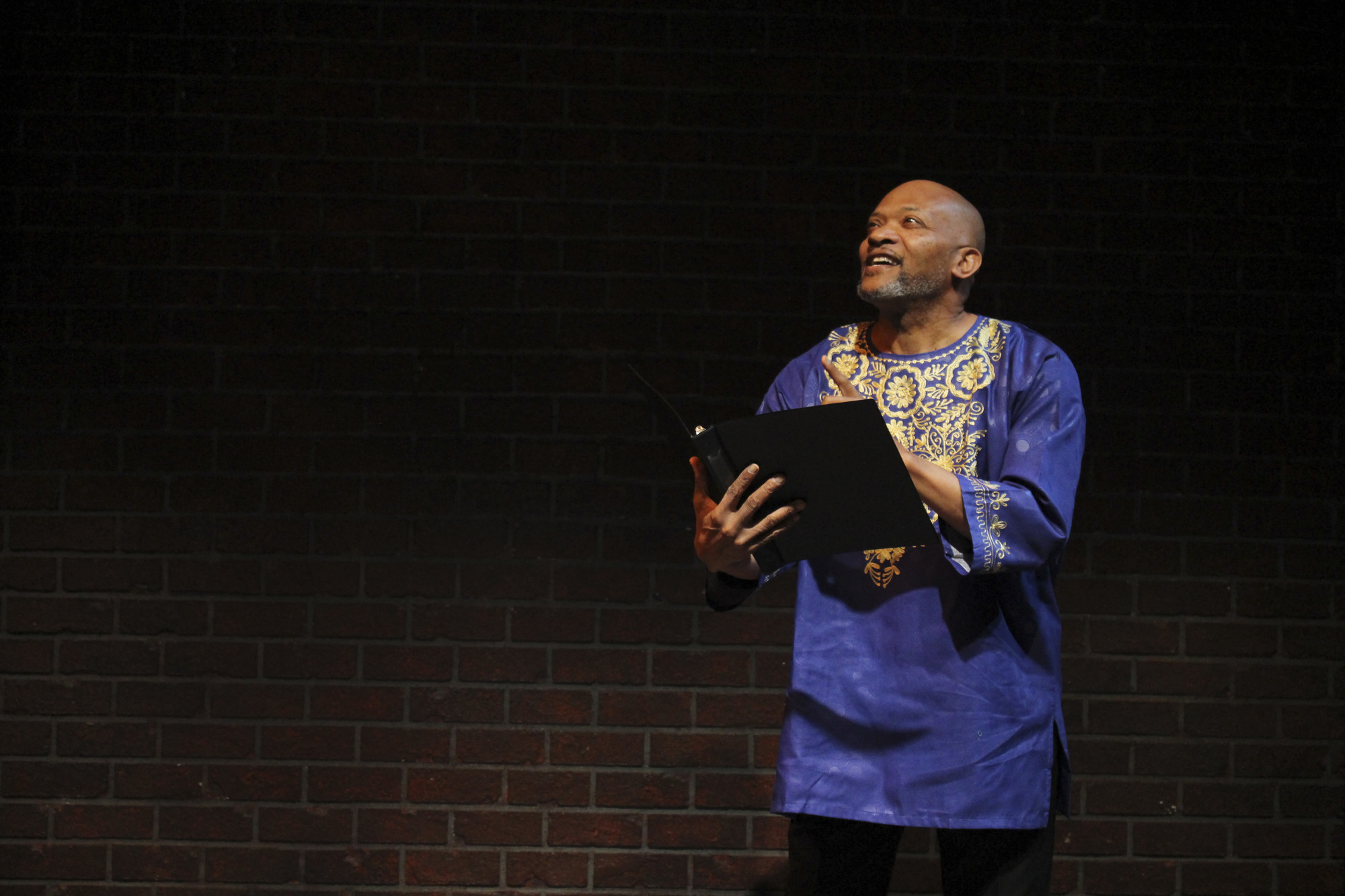- May 16, 2024
-
-
Loading

Loading

In the summer of 2000, Jessica Blank and Erik Jensen hit the road—a meandering journey that started in New York City and ended in America’s heartland. It wasn’t a pleasure trip. The two young actors were interviewing 20 wrongly convicted death row inmates—people who had been recently exonerated and released thanks to the Innocence Project. They’d drive from house to house, and record one grueling interview after another. One would sleep while the other took the wheel. At the end of the road …
“The Exonerated” was the result.
Jensen and Blank’s play revolves around six unjustly incarcerated people — six real human beings, not fictional inventions. Drawing on countless hours of recorded interviews, their script is a distillation of six exonerated inmates’ actual words. It’s an honest play—and the dead opposite of a feel-good diversion.

At the dawn of this century, the 20-something playwrights anticipated a few runs before the final curtain of theatrical obscurity. If their play touched a handful of hearts and minds, all their hard work would be worth it. That was their modest goal. But it’s not what happened.
In 2002, their uncompromising play premiered to critical acclaim — and found ongoing life on alternative stages across the country.
“We thought we were creating an Off-Off-Broadway play that would run for a few weeks and be seen by our community of friends,” Blank recalls. “Nobody was more surprised than us by the life and impact the play has had.”
In April 2005, “The Exonerated” made an impact in Sarasota. It was part of Florida Studio Theatre’s first season of edgy “Stage III” plays. Kate Alexander directed the first shattering production. 12 years later, she’s doing it again. Why?
“This play combines everything I love in live theater,” Alexander says. “It has deep meaning, rich language and tales of true heroism — and it’s more timely than ever.”

The director’s staging is similar the second time around — a minimalist approach with a journalistic intent. Six monologues by six actors without flash and filigree. At the playwrights’ request, the focus is on the words, not the performance. That emphasis will remain unchanged.
But Alexander has learned few things in 12 years. Depending on whom you ask, God or the devil is in the details. And it’s the little things that count.
“You make so many discoveries on the first go-round,” she says, “Whenever I finish a play, I think, ‘Now I know how to direct it.’ And now I do. My mind is free to take it to the next level.”
To Alexander, it’s all about honoring the emotional truths of the play’s six characters, who happen to be flesh and blood.
“These are true stories, using the actual words of real people,” she says. “We honor them, and convey their shared experience with fierce respect.”
That collective experience is harrowing. Injustice is hard to take in the bloody pages of great fiction. It’s harder still when the characters are real.

As real as the terrified bartender who left his fingerprints in the wrong woman’s apartment and stupidly lied about it. Or the grieving son whose parents had been stabbed to death — and deliriously agreed to a hypothetical scenario after 14 hours of harsh police interrogation. Or the young couple who accepted a ride from a felon after their car broke down — a criminal who then crashed a police roadblock, killed two cops and fingered the couple in plea-bargaining. She spent 14 years in prison. Her boyfriend died in a malfunctioning electric chair after 13 minutes of agony.
Job’s false friends assumed he had it coming. He didn’t. And neither do these six exonerated characters, whose innocence was conclusively proven by DNA evidence.
The reality is: Bad things happen to good people. And thanks to corrupt legal practices, trickery, intimidation, backroom beatings, false confessions, lying informants, eyewitness mistakes, junk science and spurious evidence, six good people were wrongly convicted and faced the death penalty. Before the lights went out, they faced humiliation and abuse by their fellow death row inmates.
Horrific stuff. The kind of thing you’d see on HBO’s “Oz” back in the day. But this isn’t a screenwriter’s invention.
This real-life horror forces the FST actors into a raw, vulnerable place. Conversely, Alexander takes them there by making them feel safe.

“I create an emotional safety net in the rehearsal room,” she says. “There’s absolute trust. Everyone’s free to make mistakes without fear. These stories are true. The truth is what’s important, and we’ll find that truth together.”
What truth?
“Fix the justice system or eliminate the death penalty” is the play’s obvious takeaway. Nobody wants to spell it out. But Alexander does say …
“This is a play about innocents, not criminals. We can’t dismiss it as something that happens to somebody else. These are people like us. Any one of us could find ourselves trapped in the labyrinth of the criminal justice systems with no escape.”
Blank says the play can have a role in starting a conversation.
“Governor George Ryan of Illinois was a pro-death-penalty Republican — but he was considering commuting the sentences of the death row inmates in his state. He held hearings; he appointed a bipartisan commission on wrongful convictions; he listened to experts; he agonized for months; and then he asked to see our play. He did. And the governor later commuted the sentences of over 150 death row inmates. He said the stories that he’d heard in “The Exonerated” were an influence. We would never take credit for Gov. Ryan’s decision. But we were part of the conversation leading up to it. And that’s enough.”